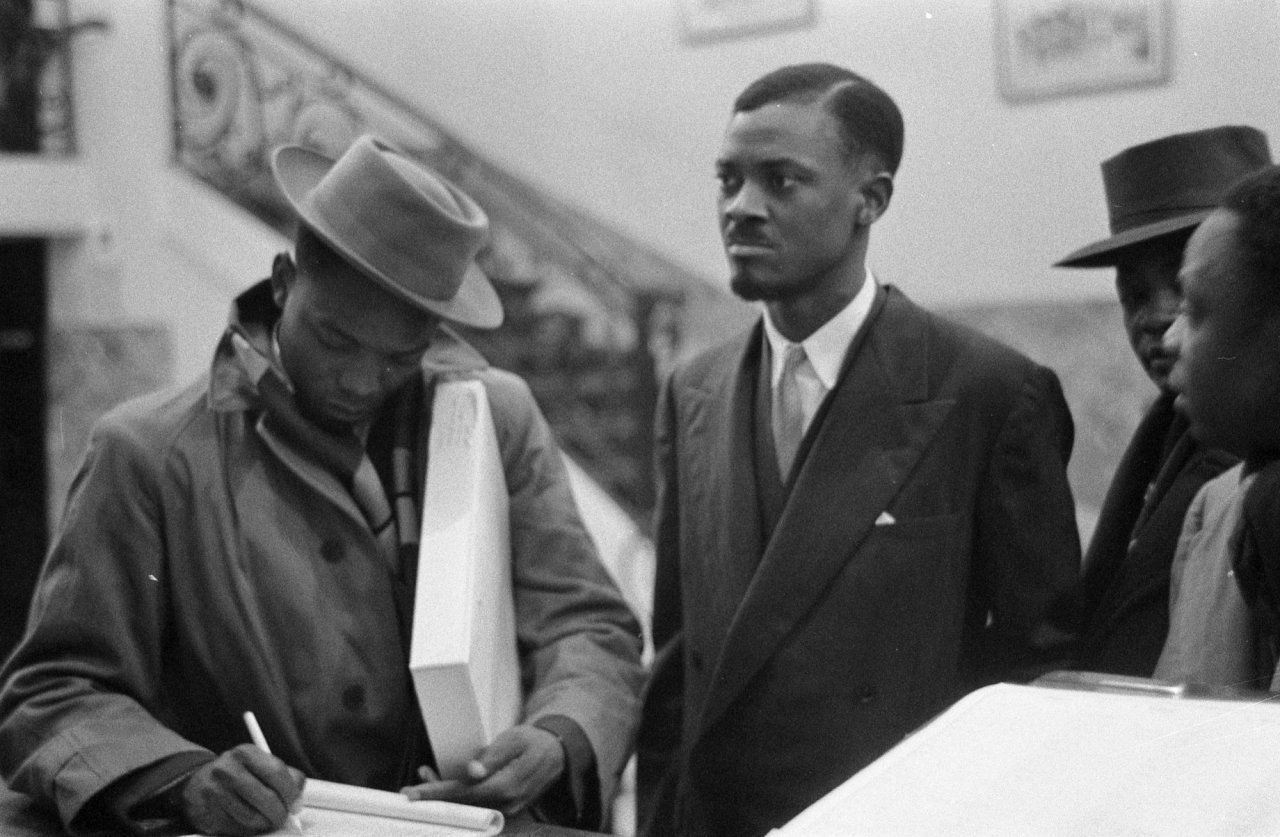The Congo Civil War, or Congo Crisis, was a complex political tumult that began just days following Belgium’s granting of Congolese independence in 1960. Lasting four years, the associated violence claimed an estimated 100,000 lives including the nation’s first Prime Minister, Patrice Lumumba, and UN Secretary Dag Hammarskjöld, who was killed in a plane crash as he attempted to mediate the crisis. Escalating with the secession of the southernmost province of Katanga, the conflict concluded five years later with a united Congo emerging under the dictatorship of Joseph-Désiré Mobutu.
On June 30, 1960, Belgium negotiated post-colonial mining rights in declaring an independent Democratic Republic of the Congo (DRC). Yet within days, soldiers of the Congolese army mutinied, demanding increased pay and the removal of white officers from their ranks. When Belgium intervened militarily, more soldiers rebelled. Many of these soldiers gravitated toward the radical nationalist Prime Minister Patrice Emery Lumumba.
Then, dominated by Belgian business interests, the mineral-rich Katanga province under the leadership of Moïse Kapenda Tshombe seceded from the DRC with Belgian support. Congolese President Joseph Kasavubu and Prime Minister Lumumba asked and received a peacekeeping force from the United Nations (UN).
The conflict also became the site of a dangerous Cold War “proxy” contest between western powers led by the United States and the Soviet Union-led Communist bloc. Under pressure from western nations and in exchange for UN support, President Kasavubu purged his government of radical elements including Prime Minister Lumumba. The ultra-nationalist Lumumba, though supported by the Congolese, was viewed by Western business leaders as an obstacle to their continued investments in Congolese diamond mines. Fearing Lumumba was secretly a Communist, the United States was particularly adamant about his removal from power.
Lumumba responded by firing Kasavubu as both leaders claimed control over the country, and Army Chief of Staff Joseph Mobutu in turn orchestrated a military coup d’état which ousted the two leaders. Mobutu’s government was supported by western governments. The Soviet Union and other Communist nations supported Lumumba who ultimately was killed by Katangan rebels.
With his chief rival removed, Mobutu pledged nominal support to President Kasavubu and the two led the successful effort to end the Katanga secession. UN forces eventually recaptured all of Katanga province. In 1964, a new rebellion began in the Eastern Congo when armed fighters (“Simbas”) began to spread across the region. Ironically, Moïse Tshombe, who had led the secessionist Katanga province, was made prime minister with the mandate to defeat these rebels and end other regional revolts. The Simbas were defeated in November 1964.
One year later, Mobutu seized power from President Kasavubu after having persuaded Western leaders that he was the most effective leader in the fight against communism. Kasavubu and Tshombe were exiled as Mobutu set up a one-party dictatorship, controlling the nation until 1997. Nonetheless, for the first time since independence, all of the country was ruled by one government.
Megathreads and spaces to hang out:
- 📀 Come listen to music and Watch movies with your fellow Hexbears nerd, in Cy.tube
- 🔥 Read and talk about a current topics in the News Megathread
- ⚔ Come talk in the New Weekly PoC thread
- ✨ Talk with fellow Trans comrades in the New Weekly Trans thread
reminders:
- 💚 You nerds can join specific comms to see posts about all sorts of topics
- 💙 Hexbear’s algorithm prioritizes comments over upbears
- 💜 Sorting by new you nerd
- 🌈 If you ever want to make your own megathread, you can reserve a spot here nerd
- 🐶 Join the unofficial Hexbear-adjacent Mastodon instance toots.matapacos.dog
Links To Resources (Aid and Theory):
Aid:
Theory:



I recently started using XMPP with another person to try it out and it's such a nice protocol. I use conversations on Android's f-droid repo and it's able to video/audio call, groupchats, send attachments etc. They weren't kidding when the only comparable protocol to the longevity of XMPP was IRC.
Fuck Signal honestly. Their centralized server implementation is a nightmare to use (compared to XMPP, Signal barely has any client implementations) and requiring a phone number is such an obvious fed ploy. I thought with usernames they would finally reach feature parity with XMPP but no it's just a nickname that masks your phone number. No wonder all the proprietary corpo messaging apps adopted Signal and got off the XMPP boat.
Don't get me started on their electron-based "desktop app" that takes forever to load in (not a great feature for a messaging app), nor the fact that they depend on Google Play services (sus). Signal should be considered a proprietary messaging app at this point. Matrix and XMPP (+ Distributed networks like GNU Jami) deserve so much more attention.
Signal's centralized service exists to handle the non trivial task of asynchronous exchange of public keys.